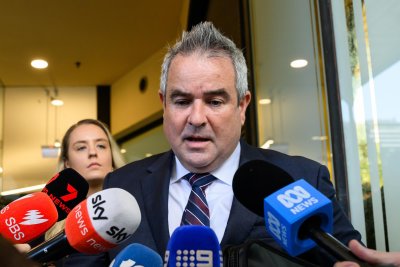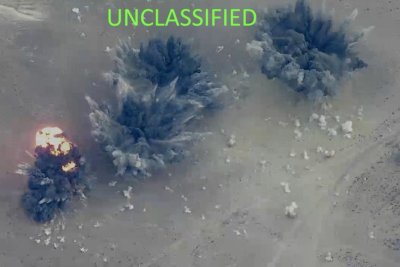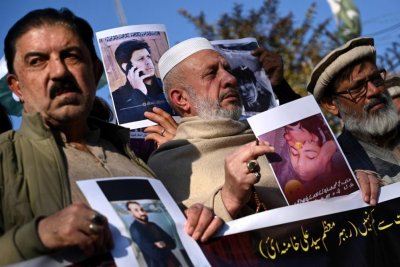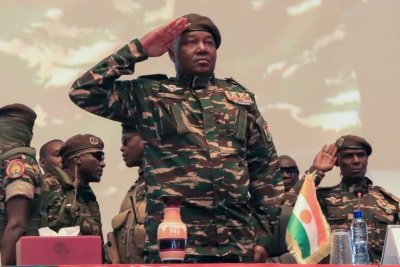Bondi Beach shooting suspect makes first court appearance

State-appointed defense counsel Ben Archbold, who is representing Naveed Akram, speaks to the media outside Downing Center Local Court in Sydney on Monday after his client made a brief appearance by video-link from prison. Photo by Bianca de Marchi/EPA
Feb. 16 (UPI) — The lone surviving suspect in the Bondi Beach shooting, in which 15 Jewish people were killed and 40 were injured, made his first court appearance in Sydney on Monday on murder and terrorism charges.
Naveed Akram, 24, appeared in court via video-link from Goulburn supermax prison to face 59 charges related to the Dec. 14 attack on a gathering to celebrate the Jewish festival of Hanukkah, including 15 counts of murder and one of carrying out a terror attack.
Akram is accused of carrying out the attack alongside his 50-year-old father, Sajid Arkram, who was shot dead at the scene by police who also shot Naveed, seriously injuring him.
Naveed Akram did not enter a plea and was asked only to confirm he understood the extension of a court order suppressing the identities of survivors of the attack who do not wish to be named in court.
After the brief hearing at Sydney’s Downing Center Local Court, criminal defense attorney Ben Archbold refused to answer questions as to how his client would plead, saying it was too early to say.
Court documents detail several videos, including one taken on one of their mobile phones in which the pair are allegedly seen undergoing firearms training at a rural location somewhere in New South Wales. Police allege the footage shows them “firing shotguns and moving in a tactical manner.”
Another video on Naveed Akram’s phone shows the pair allegedly posing with an Islamic State flag and long-arm firearms, in which they are allegedly heard making “a number of statements regarding their motivation for the Bondi attack and condemning the acts of ‘Zionists.'”
The documents allege the attack was “meticulously” planned over a period of months with CCTV footage also showing the pair carrying out a reconnaissance mission to Bondi on Dec. 12, in which they scoped out the footbridge from which they are alleged to have opened fire on around 1,000 people gathered in Archer Park two days later.
The pair is also alleged to have thrown several IEDs at the crowd, including a “tennis ball bomb,” but none of them detonated, according to the court documents.
Naveed and Sajid Akram spent most of November in an area of the southern Philippines known for Islamist militants, but authorities have said their investigations thus far indicate they acted alone and did not receive training or “logistical preparation” assistance there, as originally feared.
Naveed Akram is next scheduled to appear in court in April.






